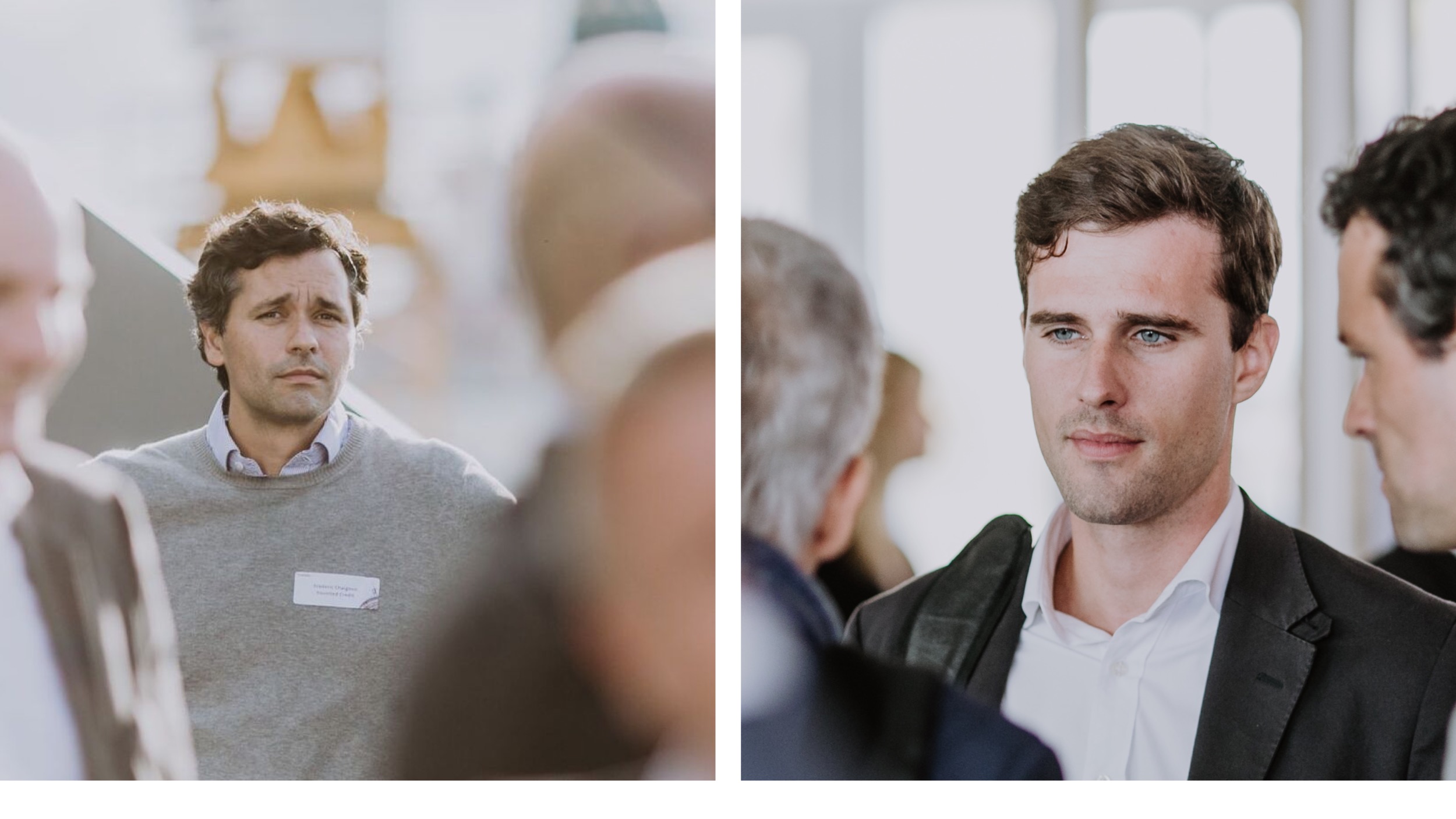We had an opportunity to talk with Younited Credit’s Head of Capital Markets Frédéric Chaignon and Business Developer Pierre-Marin Campenon at our recent banking conference in Berlin and ask them what it’s like being both a licensed bank and a top European lending platform. So far Younited Credit deposits are available on our German, Austrian, French, and Spanish platforms. We learned how Younited sees their partnership with Raisin, how AI fits into their strategy, and more.

Tell us about Younited Credit: who are you and what is your core mission?
Founded in 2009 in Paris and launched in 2011, Younited is a French bank focused on online consumer loans. Our mission is to facilitate investors (individuals but also companies, insurers, foundations, pension funds, etc.) in financing European consumer credit and to provide households with the best consumer credit available. We have three core values: simplicity, transparency, and speed. We built our value proposition on these principles and, today, we’re one of the leading platforms in Europe for online lending to retail clients.
We have three core values: simplicity, transparency, and speed. We built our value proposition on these principles and, today, we’re one of the leading platforms in Europe for online lending to retail clients.
We operate in France, Italy, Spain, and Portugal and will be launching in more countries soon. With a staff now of 250, we’ve financed around 1 billion Euro in loans so far. Our two axes of development are expanding, of course, into new geographies and developing a B2B2C white label platform — a service through which we provide partners the opportunity to launch their own consumer credit offers, which we then operate. In terms of future geographical growth, we’re now looking at Germany and the UK the most closely.
We see our partnership with Raisin as a fantastic cooperation between two successful fintechs, each bringing their own expertise to build a best-in-class product for customers.
How do you see the collaboration with Raisin?
We see our partnership with Raisin as a fantastic cooperation between two successful fintechs, each bringing their own expertise to build a best-in-class product for customers (fully online registration and administration, attractive rates). We began cooperating in 2016 and we’re proud that we’re able to work so well together. It’s also a way to extend our international presence and develop our brand in Europe while benefiting from Raisin’s marketing strength.
From your perspective, what is the outlook for European banking?
This is the global question and we try to address it through our values: simplicity and transparency, in particular. Simplicity is dealt with through digitalization. Customers have enormous expectations. They want the simplest, smartest digital journey with full access to all features and we focus on providing this.
The market standard for transparency also now involves complete access to information, including comparisons, so banks have to adapt how they interact with customers, being entirely transparent about the ways they work, how data privacy is managed, and what the costs are.
Customers have enormous expectations. They want the simplest, smartest digital journey with full access to all features and we focus on providing this.
Digitalization is the essential factor driving change in the banking industry. Start-ups in other industries have raised customers’ standards and they’re now being applied to banks, despite the fact that our business can be way more complicated. It’s comparatively easy to digitize social media but when you talk about banks, the IT, the data privacy, the financial numbers are all much more complex. So it’s a lot more difficult, and yet that’s the level we want to reach in order to meet customers’ expectations.

Younited has gotten attention for your use of data science, developing AI models to come up with customer credit ratings. Can you tell us how you see artificial intelligence?
Data is at the heart of Younited’s strategy, since data is the key driver of decreased risk costs and of speed and enhanced productivity — which then lower the cost of our service. Whenever possible, wherever it’s useful to this strategy, we implement artificial intelligence. Apart from interactions with customers on the frontend, we’ve taken advantage of what’s available in terms of the latest, state-of-the-art innovations on our backend, to enrich all the mechanisms and operations behind the scenes. Obviously AI will dramatically change the way we underwrite consumer credit, since credit is based on scoring with an algorithm that AI can greatly enhance.
We’re progressively integrating artificial intelligence into our systems, doing it in a balanced way to understand the consequences first.
Currently two modules of our value chain are involved: Smart Upload, where uploaded credentials get checked in real time, giving an immediate assessment of a document’s quality, and the credit score. We do use a standard scoring model (fully proprietary), and are also running a model using machine learning. And of course there are a number of other fields where Younited is exploring opportunities to use AI.
So we’re progressively integrating artificial intelligence into our systems, but doing it in a balanced way to understand the consequences first — exactly what difference it makes and how it can ultimately improve our results.
Younited has a bank license but is also fintech. Can you tell us about the advantages and drawbacks of being in both worlds?
The drawbacks are the same as the advantages. For us the context was different than other similar platforms in Europe, since France absolutely forbids marketplace lending without a banking license. At the beginning it was a pitfall, since it took the founders two years to acquire the license before they could start commercial activity. It quickly turned into an advantage, however, since being like a bank involves maintaining standards that are very attractive to investors, and it means structuring our organization based on the best governance practices in the banking industry and most rigorous guidelines in terms risk management.
Thanks to Pierre-Marin Campenon and Frédéric Chaignon for joining us in Berlin and for the very informative introduction. We’re looking forward to learning more about Younited’s innovative development as our partnership continues.



